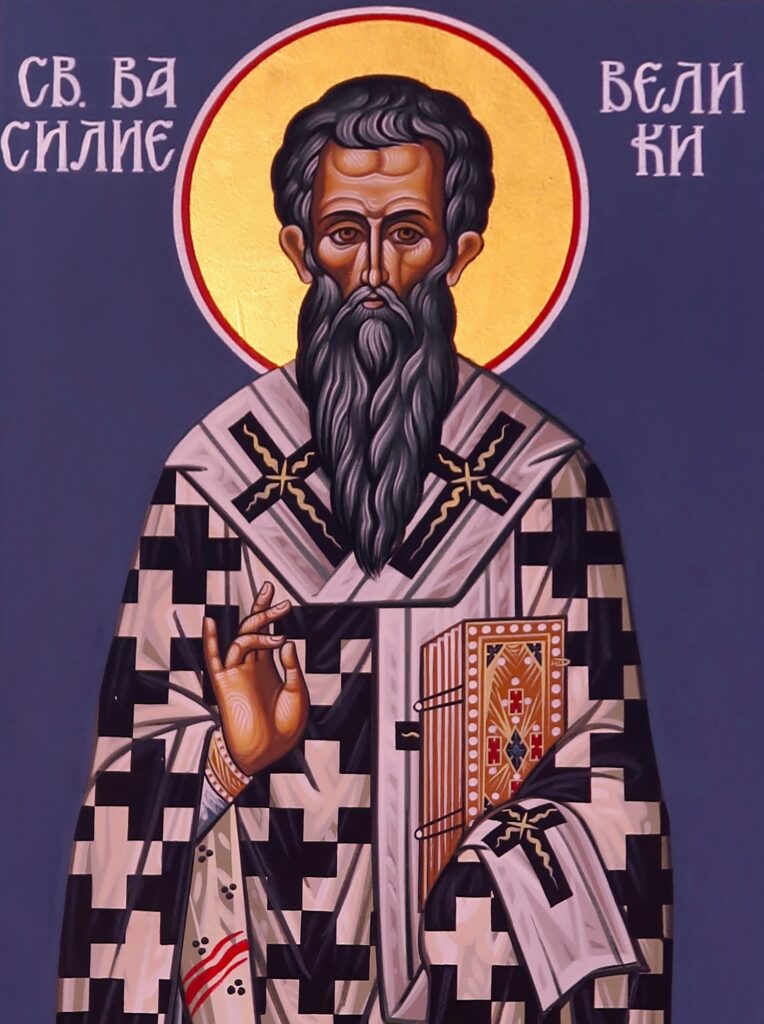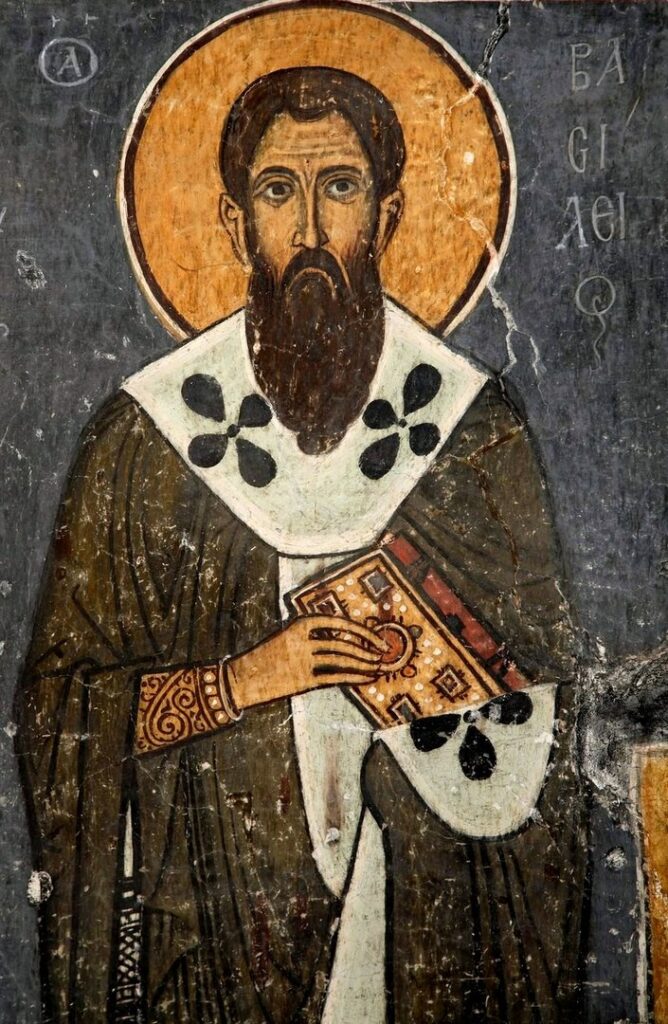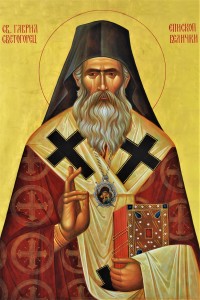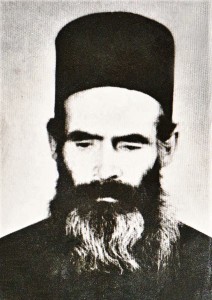Saint Basil the Great – Father Gavril Galev
Posted By Macedon on January 14, 2025
~+~
DIVINELY-WISE TEACHER
OF THE UNIVERSE
Saint Basil is a fiery pillar of the Church, one of the three supporting pillars of the Church’s teachings, together with Saints Gregory the Theologian and John Chrysostom. He is the bearer of the Cappadocian school, which establishes the basic dogmas of the Holy Trinity, of God, on which all Pneumatology and Christology in the Orthodox Church will later be built, in defense against heresies.
It is enough just to say – Saint Basil the Great, and to get a clear idea of a holy man, a man of God, a righteous man, a living icon of Christ. Bishop, zealot and unwavering fighter for the Orthodox Church. Full of grace theologian and seer of God, teacher of the universe, guardian of dogmas and light of the Orthodox faith. Inspired through the breath of God, organiser of the Holy Liturgy and church worship, apostolic editor of the canonical order in the Church and the conciliar organisation.
Venerable ascetic and perfect monk, founder of monasticism, editor of monastic rules and father of monks. Tolerant (understanding) pastor, who converts the deluded, comforter of the weak and protector of the poor, and, orphans.
Few people receive the title “Great” in the Church, and Saint Basil is one of those few who received this epithet because of his holy and praised life. How Saint Basil was Great is shown by the fact that he received that title while he was still alive.
(more…)




